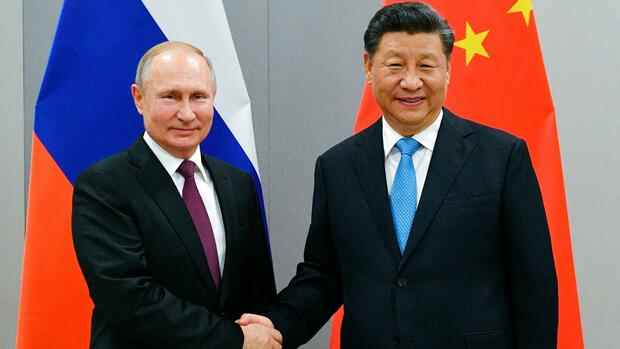Relations with Russia and China will be the first test for the new federal government.
(Photo: AP)
Realpolitik in Germany since the times of Helmut Schmidt has had the bitter aftertaste that the desirable and the feasible fall apart. This is especially true in foreign policy. Especially in a country that has been shuttling back and forth between blissful navel gazing and missionary world improvement since the fall of the Berlin Wall, this life experience often meets with incomprehension. What we need, however, is Realpolitik 2.0, which links economic interests and values more closely. Because they are no longer opposites.
With Olaf Scholz, Helmut Schmidt’s “Realpolitik” is currently experiencing a resurrection. This applies above all to our dealings with the great powers: “We have to align our China policy with the China that we actually find,” demanded the new Chancellor in his first government statement.
Specifically, this means: We should bury the illusion that China will transform itself into a liberal democracy through trade. At the same time, however, we should also take note of the fact that Germany cannot simply decouple itself economically from what will soon be the world’s largest economy.
Scholz would have to be similarly realistic towards Russia. The threat not to operate the Nordstream 2 gas pipeline does not make Putin a democrat, but it may help deter him from invading Ukraine.
Top jobs of the day
Find the best jobs now and
be notified by email.
But what does realpolitik mean in a world of conflicts between rival great powers in which we are constantly forced to weigh up our values and economic interests? Schmidt described the credo of Realpolitik in 2014 as follows: “I am very much in favor of politics not having to do with illusions, but with facts; and that politicians are aware that the possibilities to change facts are limited. “
With dialectics to “value-oriented realpolitik”
A little more realism from the Schmidt brand would certainly do good for German foreign policy, which is always trying to be on the right side of history. Realpolitik and the “value-based” foreign and security policy proclaimed in the coalition agreement are by no means mutually exclusive.
Jürgen Trittin, foreign policy spokesman for the Greens and trained in the dialectical elimination of contradictions, even dreams of a “value-oriented realpolitik” that is driven more by the interests of Germany than by the zeal for world improvement.
In an increasingly digitalized global economy, values and economic interests often go hand in hand. When the Chinese telecom equipment supplier Huawei delivers modern 5G technology, it is not just about antennas and radio masts, but about a highly sensitive infrastructure that can be of enormous importance for national security and thus also for the economic stability of the customer countries.
It is therefore politically and economically right that the EU has drawn a ban mile around its critical infrastructure. For similar reasons, the US has now blacklisted more than 40 Chinese high-tech companies – and at the same time penalized them for contributing to the suppression of Muslim Uyghurs in China.
The acid test for “value-oriented realpolitik” comes when the new federal government has to weigh up the economic interests of German carmakers with their political possibilities to influence Beijing’s behavior internally and externally. The fact that BMW, Daimler and VW want to increase their dependence on the Chinese market doesn’t make things any easier.
But here, too, morality and business are not incompatible: After all, economic reason to reduce China’s cluster risk and limit data and technology transfer is also important.
More: Plea for a value-oriented realpolitik
